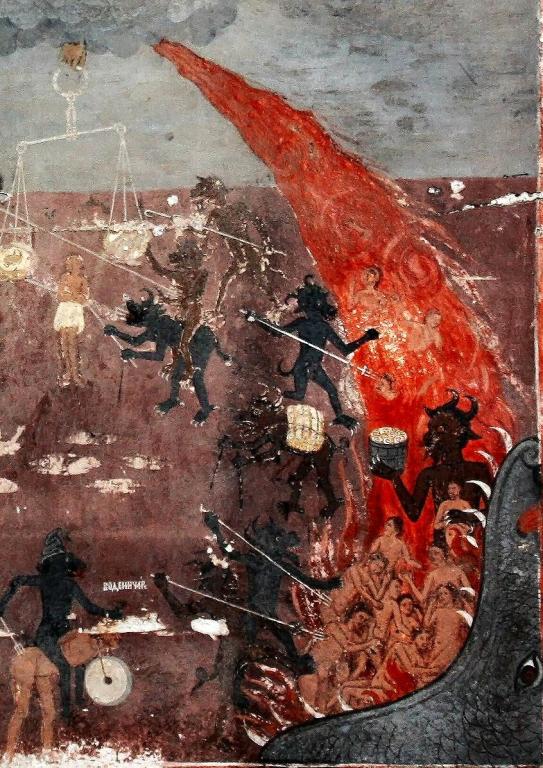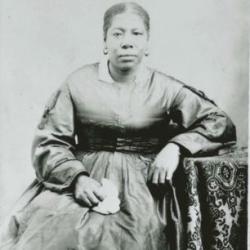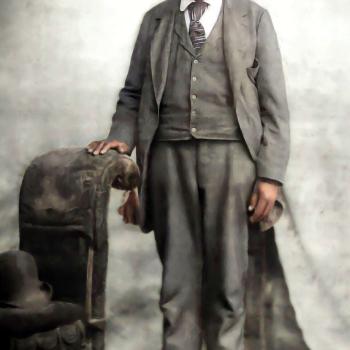
(Wikimedia Commons public domain image)
About nine days ago, I posted a blog entry that was entitled “Contra Calvinism 1.” If you read it, you’ll be able to judge for yourself whether, as my Malevolent Stalker and his small tribe of fellow warriors have characterized it, the blog entry was “motivated by bigotry, hatred, and revenge,” and whether, as he declares, it is a specimen of my “bigotry unleashed,” a declaration of “open season” on Calvinism and other faiths, and a case of my “lashing out” against those not of my faith.
And please read this current blog entry, too, with those descriptions in mind: The title of that previous post implied (and I expressly said) that I would revisit the topic . . . and, well, The Time Has Now Come to Do So.
I simply wanted to tell a little story that I think I’ve told somewhere before, but that, in the twenty seconds that I devoted to looking for it, I could not find. Here is how it goes:
Many years ago, in June of 1998, the Southern Baptist Convention, attempting to bring Christianity for the first time to the heathens of Utah, held its very large annual meeting in Salt Lake City. When the time came, thousands of fervent Southern Baptists descended upon the home city of the Church of Jesus Christ of Latter-day Saints. In preparation for the planned mass-evangelization event that was to accompany their annual meeting, they produced a fair amount of curricular material in various forms that was designed to equip their members to understand and to rebut “Mormonism.” I myself responded to some of their teaching materials (“‘Shall They Not Both Fall into the Ditch?’ What Certain Baptists Think they Know about the Restored Gospel”), and I wrote two of the ten essays (“Are Latter-day Saints Christian?” and “Do Latter-day Saints believe that men and women can become Gods?”) in a brief publication that was intended to answer certain commonly-asked questions about the teachings of the Restoration.
Not only did the Southern Baptists hold their meetings—I attended one or two of those meetings myself—but they fanned out into various communities (at least along the Wasatch Front), going door to door in order to share their message with the residents of my adopted home state. Two of them came to my own front door early one evening, and we had a pleasant visit.
President Gordon B. Hinckley had encouraged the Latter-day Saints of Utah to treat our visiting Baptist brothers and sisters with respect and hospitality and, so far as I’m aware, we did so. I don’t know whether the Baptists got any converts from among us, but I heard reports that at least one or two of the visiting SBC delegates ended up joining the Restored Church. (Whether that’s really true or not, I cannot say. Certainly I wouldn’t be surprised if a few of them, or even perhaps many of them, came to recognize that the reality of the Latter-day Saints was, umm, a little bit different from what SBC teaching materials had led them to expect.)
But what, you may be asking at this point, does this have to do with Calvinism? I’m happy to answer.
Among the delegates who came to Utah was a Baptist pastor who, at the time, headed up a small organization called Utah Missions, Inc. (UMI). Despite its name, it was based in Marlow, Oklahoma. Among other things, UMI published a monthly “newspaper” called The Utah Evangel, to which, by that time, I had been subscribing for well over a decade. (The subscription was free, and I judged that I had definitely been getting my money’s worth.) The founder of UMI, an irascible old codger with whom I had a long and, to me anyway, an enjoyable correspondence, had retired and possibly even passed away by that time. So had his more literate but equally belligerent immediate successor. Now, a new man had taken the reins of the operation, a much friendlier anti-Mormon, and I had been corresponding with him. We arranged to do lunch when he came out to Utah for the SBC’s convention.
When the time arrived, his wife joined him for our lunch engagement, and my friends Lou Midgley and Bill Hamblin also joined us. Now, American Evangelicalism in general and the Southern Baptist Convention in particular have tended toward Calvinism in the past two or three generations—much more (I think, though I’m no expert) than before. It soon became evident (partly because he expressly said so), that my visitor leaned toward Calvinist ideas.
We had a pleasant conversation about many things, not all of them doctrinal or even religious. But then our talk turned to the salvation of the unevangelized, those who never in their lifetimes heard the name of Jesus. He responded that, without accepting Jesus as Savior in this mortal life, salvation was impossible.
I asked about the fate of, say, a peasant in eighth-century China who in his lifetime never traveled more than more than fifty miles from his native village, and who never came within five hundred miles (or much more!) of a Christian. Or, given their view of the Book of Mormon, what about a Plains Indian in the Pre-Columbian New World? Well, came the answer, they’re damned. And this was all part of the sovereign design of God, predestined before the foundation of the world. I suggested that, while God seemed to favor Scots Presbyterians and the Dutch Reformed, he appeared to have given the Chinese an obviously raw deal. The wife, who had been largely silent during this part of the conversation, suggested that “maybe God hates the Chinese.” I looked to see if there was even the slightest trace of humor or irony in what she said. There wasn’t.
But, I asked, how is this even remotely fair? How can God justly condemn someone for not accepting a message that she never heard and that she never could have heard? Maybe, came the response, God’s justice is different from our justice? Indeed, I answered. It seems, on their explanation of it, exactly like our injustice. I said that any father who treated his children in an analogous way would be considered grotesquely unfair. He would be guilty of what might properly be termed parental malpractice.
We went back and forth on this for a while, and then, finally, I decided to tell them quite frankly what I really thought. It went something along the following lines:
“Look,” I said. “I know that you consider our view of God blasphemous. You’ve plainly said so. But let me tell you what I consider a blasphemous view of God: In your view, God freely creates us out of nothing. He is under no obligation to do so; he could simply have left some or all of us nonexistent. But he doesn’t. He makes us as he chooses, flawed from the start, knowing full well that most of us are bound for Hell. He places most of us in times or locations where we cannot possibly accept Jesus, and then he condemns us for not accepting Jesus.
“Moreover, he creates us freely, knowing with a perfect knowledge that he will eventually damn us to an eternity of, in your theology, literal torture and torment. He could have simply, painlessly, snuffed us out at death. But no, he keeps us alive and conscious in order to inflict unspeakable pain on us, And that punishment will never end. It’s not designed to teach us anything. It will continue forever, long past — infinitely past — any time where we’ve ‘learned our lesson.’ It’s like a father who spanks his child forever and ever and ever and ever. We would regard such a parent as criminally insane.
“I can imagine worshiping your God out of terror, but I cannot imagine loving him, or even, in a very real sense, respecting him. I seem to be better than he is.”
Now, there might be ingenious Calvinist responses to my horrified objection. The Calvinists have a lively and rich intellectual tradition, commencing at a minimum with John Calvin himself. But they offered no such response. I told them that, while Christianity was supposed to be the “Good News” — the “Gospel,” the euangelion — their view of God didn’t seem to me to be “good news” in any sense whatsoever. They agreed that we disagreed.
Another objection that I have toward Calvinism, though I cannot remember whether I brought it up that day or not, is simply this: Divine predestination makes God ultimately responsible for every act of injustice, abuse, rape, murder, and genocide that occurs. If something happens, it happens by his will. If nothing happens against his will, I see no way to exculpate him from that guilt.
It’s easy to imagine parents who try to raise a child well but whose child, to their sorrow and against their will, becomes a criminal or, anyway, chooses to repudiate their teachings and values. Such things happen all the time. We don’t condemn those kind and decent parents or hold them responsible for the child’s later life and choices. But what of a brilliant inventor who freely and deliberately creates an evil, murderous robot, knowing in advance the havoc and mayhem and sorrows it will cause? Surely, we would hold that inventor responsible for the actions of his creation. And, surely, in relevant respects, that inventor resembles the Calvinist representation of God much more than he resembles those kindly and loving but sad and disappointed parents.
And here, as far as I’m concerned, endeth the lesson.
Posted from Williamsburg, Virginia

















